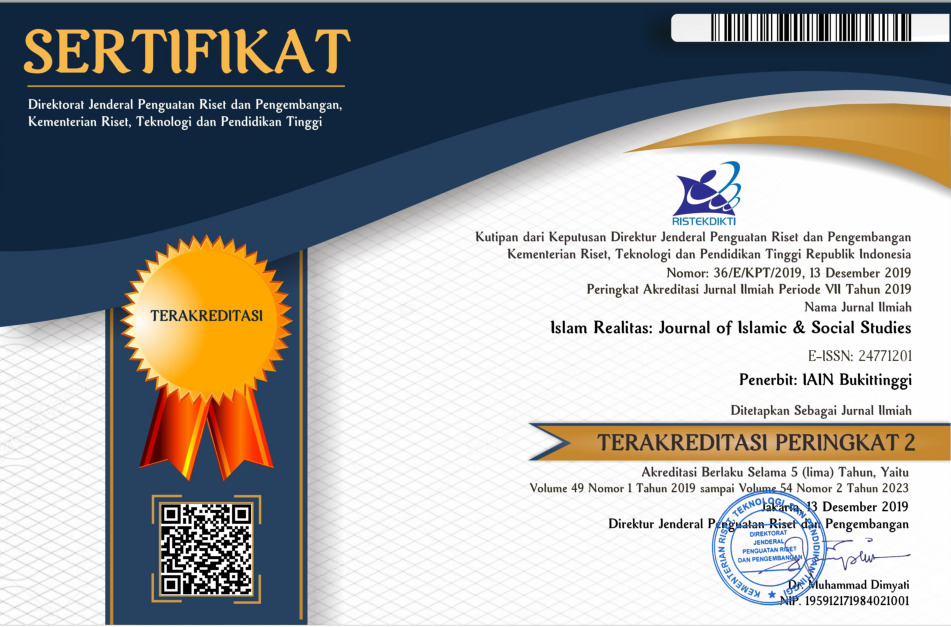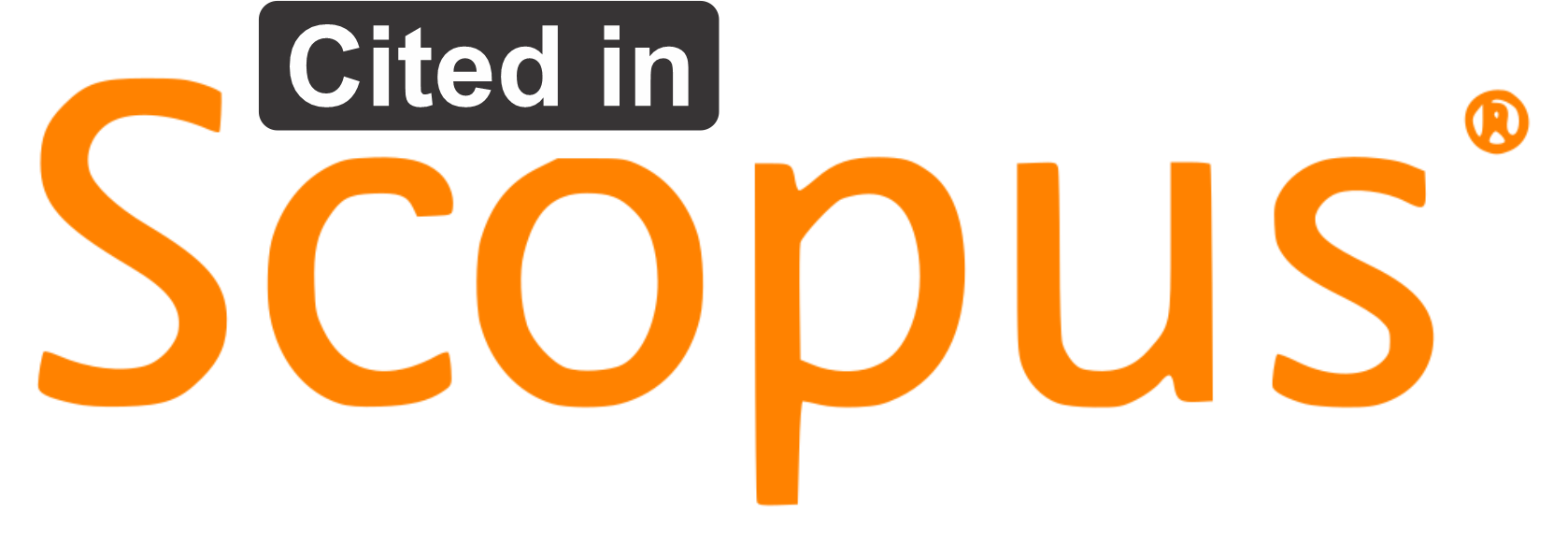Youth’s Behaviour Towards Halal Tourism In West Sumatra
Downloads
Research on the behavior of the millennial generation towards halal tourism in Indonesia is still limited This article aims to look at millennial generations' role (especially students) in visit halal tourism in the West Sumatra region. The research method used is quantitative with the sampling technique is purposive sampling, so that the data analyzed is valid. The analytical method used is the Structural Equation Model (SEM) method with SmartPLS software. The number of respondents was 156. This study indicates that the Islamic Religiosity variable significantly influenced millennial attitudes and behaviour in purchasing halal tourism. Meanwhile, the variable of halal tourism knowledge in this study influenced their behaviour significantly. Still, it did not significantly affect their attitudes. Islamic Religious Millennial generation has a significant effect on attitudes toward purchasing halal tourism. Halal knowledge of the millennial generation, Islamic Religious Millenial, and Attitude significantly influences purchasing halal tourism.
Penelitian mengenai perilaku millennial terhadap wisata halal di Indonesia masih terbatas. Artikel ini bertujuan untuk melihat peran generasi milenial (khususnya mahasiswa) dalam kunjungan ke wisata halal di wilayah Sumatera Barat. Metode penelitian adalah kuantitatif dengan teknik pengambilan sampel adalah purposive sampling, sehingga data yang dianalisa akan valid. Metode analisa yang digunakan adalah metode Structural Equation Model (SEM) dengan software SmartPLS. Jumlah responden 156. Hasil penelitian ini menunjukkan bahwa variabel Religiusitas Islam berpengaruh signifikan terhadap sikap dan perilaku milenial dalam pembelian wisata halal. Sedangkan variabel pengetahuan pariwisata halal dalam penelitian ini berpengaruh signifikan terhadap perilaku mereka. Meski begitu, hal itu tidak terlalu mempengaruhi sikap mereka. Generasi Milenial Religius Islam berpengaruh signifikan terhadap sikap pembelian wisata halal. Pengetahuan Halal Generasi Milenial, Milenial Religius Islam, dan Sikap berpengaruh signifikan terhadap perilaku pembelian wisata halal.
Books
Ancok, Djamaludin, and Fuat Nashori Suroso, Psikologi Islam, 3rd edn (Yogyakarta: Pustaka Pelajar, 2000)
Chin, Wynne W, ‘The Partial Least Squares Approach to Structural Equation Modeling’, in Modern Methods For Business Research, ed. by George A Marcoulides (London: Lawrence Erlbaum Associates, 1998), pp. 295–336
Duman, Teoman, ‘Value of Islamic Tourism Offering: Perspectives from the Turkish Experience’, in World Islamic Tourism Forum (Kuala Lumpur, 2011)
Ferdinand, Augusty, Struktural Equation Modeling Dalam Penelitian Manajemen (Semarang: Badan Penerbit Universitas Diponegoro, 2013)
Fishbein, Martin, and Icek Ajzen, Belief, Attitude, Intention and Behavior:An Introduction to Theory and Research (Massachussets: Addison-Wesley Publishing Company, 1975)
Kotler, P, and K.L Keller, Marketing Management, 15th edn, 2016
Lancaster, L.C., and D. Stillman, When Generations Collide: Who They Are. Why They Clash. How to Solve the Generational Puzzle at Work (New York: HarperCollins, 2002)
Loudon, David L, and Albert J Delia Bitta, Consumer Behavior: Concepts and Applications (New York: McGraw-Hill, 1979)
Mannan, M A, Islamic Economics: Theory and Practice (Cambridge: Hodder and Stroughton, 1986)
Peter, P, and J.C Olson, Perilaku Konsumen Dan Strategi Pemasaran, 9th edn (Jakarta: Salemba Empat, 2013)
Simamora, Bilson, Panduan Riset Perilaku Konsumen (Jakarta: PT. Gramedia Pustaka Utama, 2008)
Journals
Ahmad, Ahlam Nuwairah, Azmawani Abd Rahman, and Suhaimi Ab Rahman, ‘Assessing Knowledge and Religiosity on Consumer Behavior towards Halal Food and Cosmetic Products’, International Journal of Social Science and Humanity, 5.1 (2015), 10–14 <https://doi.org/10.7763/ijssh.2015.v5.413>
Al-Otoum, Firas Jamil, and Rawan S Nimri, ‘Antecedents of Consumers’ Behavior towards Halal Food among Jordanian Customers’, Journal of Marketing and Consumer Research, 12.1 (2015), 19–25
Ali, Saqib, Fairol Halim, and Norzieiriani Ahmad, ‘Beauty Premium and Halal Cosmetics Industry’, Journal of Marketing Management and Consumer Behavior, 8.4–2 (2016), 52–63 <https://doi.org/10.11113/sh.v8n4-2.1056>
Arda, Mutia, and Dewi Andriany, ‘The Effect of Halal Tourism on Millenial Tourist Satisfaction in Sabang Island as Tourism Object’, in International Seminar on Islamic Studies, 2019, I, 543–50
Briliana, Vita, and Nurwanti Mursito, ‘Exploring Antecedents and Consequences of Indonesian Muslim Youths’ Attitude towards Halal Cosmetic Products: A Case Study in Jakarta’, Asia Pacific Management Review, 22.4 (2017), 176–84 <https://doi.org/10.1016/j.apmrv.2017.07.012>
Chanin, Oraphan, Piangpis Sriprasert, Hamzah Abd Rahman, and Mohd Sobri Don, ‘Guidelines on Halal Tourism Management in the Andaman Sea Coast of Thailand’, Journal of Economics, Business and Management, 3.8 (2015), 791–94 <https://doi.org/10.7763/joebm.2015.v3.287>
Chookaew, S, O Chanin, J Charatarawat, P Sriprasert, and S Nimpaya, ‘Increasing Halal Tourism Potential at Andaman Gulf in Thailand for Muslim Country’, Journal of Economics, Business and Management, 3.7 (2015), 739–41
Eid, Riyad, and Hatem El-Gohary, ‘Muslim Tourist Perceived Value in the Hospitality and Tourism Industry’, Journal of Travel Research, 54.6 (2015), 774–87 <https://doi.org/10.1177/0047287514532367>
Endah, Nur Hadiati, ‘Perilaku Pembelian Kosmetik Berlabel Halal Oleh Konsumen Indonesia’, Jurnal Ekonomi Dan Pembangunan, 22.1 (2014), 11–25 <http://jurnalekonomi.lipi.go.id/index.php/JEP/article/view/31>
Henderson, Joan C., ‘Sharia-Compliant Hotels’, Tourism and Hospitality Research, 10.3 (2010), 246–54 <https://doi.org/10.1057/thr.2010.3>
Huda, Nurul, Muslikh Muslikh, Nova Rini, and Slamet Hidayat, ‘South Sulawesi Halal Tourism a Strategic Approach’, in 2nd International Seminar on Business, Economics, Social Science and Technology (ISBEST 2019) (South Tangerang, Indonesia: Atlantis Press, 2020), pp. 116–20 <https://doi.org/10.2991/aebmr.k.200522.024>
Huda, Nurul, Nova Rini, Muslikh Muslikh, and Slamet Hidayat, ‘West Nusa Tenggara Halal Tourism Research Approach’, in The 3rd International Conference on Islamic Epistemology, 2019, pp. 133–47
Maichum, Kamonthip, Surakiat Parichatnon, and Ke-Chung Peng, ‘The Influence of Environmental Concern and Environmental Attitude on Purchase Intention towards Green Products: A Case Study of Young Consumers in Thailand’, Www.Ijbmm.Com International Journal of Business Marketing and Management, 2.3 (2017), 01–08
Pratiwi, Ira Eka, ‘Factors Influencing Muslims Compliance ( a Non-Muslim Region in Indonesia )’, QIJIS: Qudus Internasi Onal Journal Od Islam Studi, 6.1 (2018), 69–88
Rahman, Azmawani Abd, Ebrahim Asrarhaghighi, and Suhaimi Ab Rahman, ‘Consumers and Halal Cosmetic Products: Knowledge, Religiosity, Attitude and Intention’, Journal of Islamic Marketing, 6.1 (2015), 1–25 <https://doi.org/Permanenthttp://dx.doi.org/10.1108/JIMA-09-2013-0068>
Shakiry, A.S, ‘Islamic Tourism Means Tourism Based on Ethical Codes’, An Interview with CHN during the International Conference on Tourism of Islamic Countries. Retrieved July 10, 2009, from Http://Www.Chn Press.Com/News/?Section=1&id=1819, 2007
Simanjuntak, Megawati, and Muhammad Mardi Dewantara, ‘The Effects of Knowledge, Religiosity Value, and Attitude on Halal Label Reading Behavior of Undergraduate Students’, ASEAN Marketing Journal, 6.2 (2014), 65–76 <https://doi.org/10.21002/amj.v6i2.4216>
Sotiriadis, Marios D, ‘Sharing Tourism Experiences in Social Media’, International Journal of Contemporary Hospitality Management, 29.1 (2017), 179–225 <https://doi.org/10.1108/ijchm-05-2016-0300>
Walters, Gabrielle, Ann Wallin, and Nicole Hartley, ‘The Threat of Terrorism and Tourist Choice Behavior’, Journal of Travel Research, 58.3 (2019), 370–82 <https://doi.org/10.1177/0047287518755503>
Yuswohady, ‘Millennial Trends 2016’, Yuswohady.Com, 2016 <https://www.yuswohady.com/2016/01/17/millennial-trends-2016/>
Authors who publish with this journal agree to the following terms:
- Authors retain copyright and grant the journal right of first publication with the work simultaneously licensed under a Creative Commons Attribution License that allows others to share the work with an acknowledgment of the work's authorship and initial publication in this journal.
- Authors are able to enter into separate, additional contractual arrangements for the non-exclusive distribution of the journal's published version of the work (e.g., post it to an institutional repository or publish it in a book), with an acknowledgment of its initial publication in this journal.
- Authors are permitted and encouraged to post their work online (e.g., in institutional repositories or on their website) prior to and during the submission process, as it can lead to productive exchanges, as well as earlier and greater citation of published work (See The Effect of Open Access).









